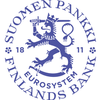Euro area inflation currently at around the 2% target and growth holding on amid tariff turmoil
The euro area economy is holding on amid the tariff turmoil. Although the economy has grown by more than was forecast, growth is nevertheless still weak. On the more positive side, the high inflation of recent years has been brought back under control.

The Governing Council of the European Central Bank (ECB) decided yesterday to keep the key ECB interest rates unchanged. According to the ECB’s projections, inflation will stay around the medium-term target of 2%. Inflation is expected to average 2.1% in 2025, 1.7% in 2026 and 1.9% in 2027.
“With uncertainty continuing and the inflation outlook currently being close to target, we on the ECB’s Governing Council had no pressing need to adjust interest rates. However, there is no room for complacency, and we’ll stay vigilant. We are not pre-committing to a particular rate path, but will exercise agility and follow a meeting-by-meeting approach to our decisions, the next meeting being in October,” says Governor of the Bank of Finland and member of the ECB’s Governing Council Olli Rehn.
Impact of defence procurements on economic growth
Geopolitical and trade policy uncertainty will further weaken growth in the economy, although the most significant threats were eased by the summer’s tariff agreement, and demand is still being supported by the earlier interest rate cuts. Growth may, however, be stimulated by the increase in defence spending and investment. The greater the domestic content of defence procurements in the euro area, the more jobs would be created and incomes would grow, and the multiplier effect of this on the economy would be larger.
“An increase in defence spending will support euro area growth, especially in 2026 and 2027. The pressure on public finances caused by this expenditure, both in Finland and in Europe, can be reduced if investment is successfully allocated to common procurements and to activity that promotes the development of new technologies. Key to this are skilled individuals and the innovations they produce,” says Governor Rehn.
The main purpose of defence spending is to enhance security, but the economic effects must also be considered. The additional defence expenditure will inevitably increase public debt, at least in the short term, but the greater the economic growth brought about by this spending, the less marked will be the increase in debt.
Finland’s economy making a faltering return to growth
The Finnish economy is making a faltering return to growth, according to the Bank of Finland’s interim forecast published today. The outlook for the corporate sector has improved, but low household confidence continues to hinder growth in the economy.
Due to the weak performance in the early part of the year, the Finnish economy’s full-year growth for 2025 will be 0.3%. Growth will pick up to 1.3% in 2026 and to 1.7% in 2027. Inflation will remain moderate, and the high level of unemployment will gradually start to fall from the beginning of next year. The increase in investment and the improved outlook for manufacturing are signs that the corporate sector is recovering. The currently weak household consumption will slowly improve due to wage growth and low inflation, among other things.
Presentation 12 September 2025, Governor Olli Rehn (In Finnish)
Presentation 12 September 2025, Markku Lehmus (In Finnish)
Keywords
Contacts
Median palvelulinja / Medietjänst / Media Service
Tel:+358 9 183 2101media@bof.fiLinks
Bank of Finland
The Bank of Finland is the national monetary authority and central bank of Finland. At the same time, it is also a part of the Eurosystem, which is responsible for monetary policy and other central bank tasks in the euro area and administers use of the world’s second largest currency – the euro.
Alternative languages
Subscribe to releases from Suomen Pankki
Subscribe to all the latest releases from Suomen Pankki by registering your e-mail address below. You can unsubscribe at any time.
Latest releases from Suomen Pankki
BOFITs prognos om den ekonomiska utvecklingen i Ryssland 2025–202720.10.2025 14:01:00 EEST | Pressmeddelande
Den snabba tillväxten i den ryska ekonomin är över. Under första halvåret 2025 sjönk BNP-tillväxten i Ryssland rent av betydligt snabbare än förutsett och den ekonomiska tillväxten för helåret 2025 blir högst 1 %.
BOFIT Ennuste Venäjän talouskehityksestä vuosina 2025–202720.10.2025 14:01:00 EEST | Tiedote
Venäjän talouden nopea kasvu on ohi. Venäjän BKT:n kasvuvauhti on vuoden 2025 alkupuoliskolla hidastunut selvästi ennakoituakin nopeammin, ja koko vuonna talous kasvaa korkeintaan yhden prosentin vauhtia.
BOFIT Forecast for Russian Economy 2025–202720.10.2025 14:01:00 EEST | Press release
Russia’s latest episode of high economic growth is over. In the first half of 2025, Russian GDP growth slowed even more rapidly than predicted, and growth for all of 2025 will remain at or below 1 %.
Finlands Banks chefdirektör deltar i IMF:s årsmöten15.10.2025 11:00:00 EEST | Pressmeddelande
Finlands Banks chefdirektör Olli Rehn deltar i Internationella valutafondens (IMF) och Världsbankens gemensamma årsmöte i Washington DC den 17 oktober 2025. Chefdirektör Rehn företräder Finland i valutafondens styrelse.
Suomen Pankin pääjohtaja IMF:n vuosikokouksiin15.10.2025 11:00:00 EEST | Tiedote
Suomen Pankin pääjohtaja Olli Rehn osallistuu Kansainvälisen valuuttarahaston (IMF) ja Maailmanpankin yhteiseen vuosikokoukseen Washington DC:ssä 17.10.2025. Pääjohtaja Rehn edustaa Suomea valuuttarahaston hallintoneuvostossa.
In our pressroom you can read all our latest releases, find our press contacts, images, documents and other relevant information about us.
Visit our pressroom